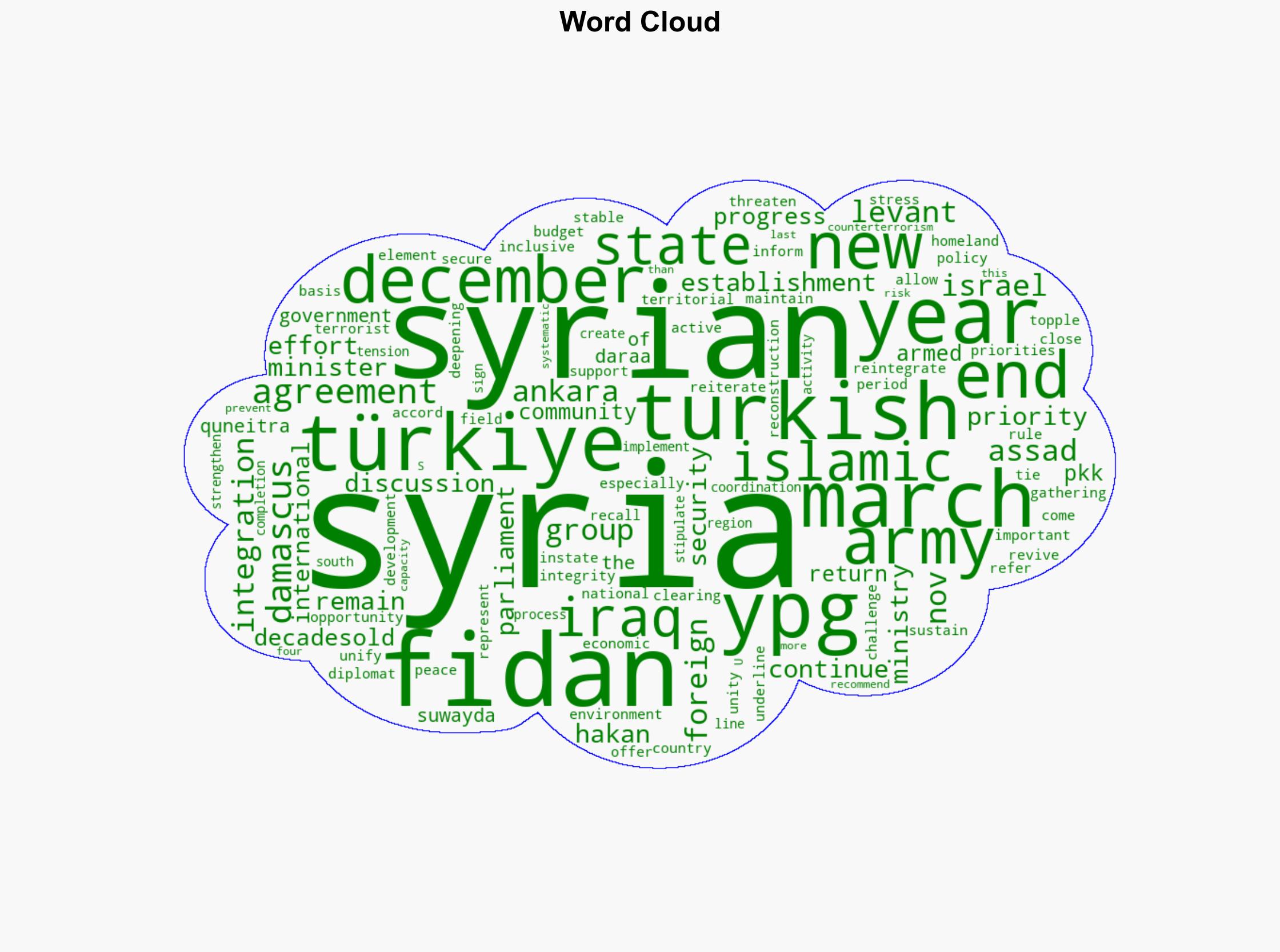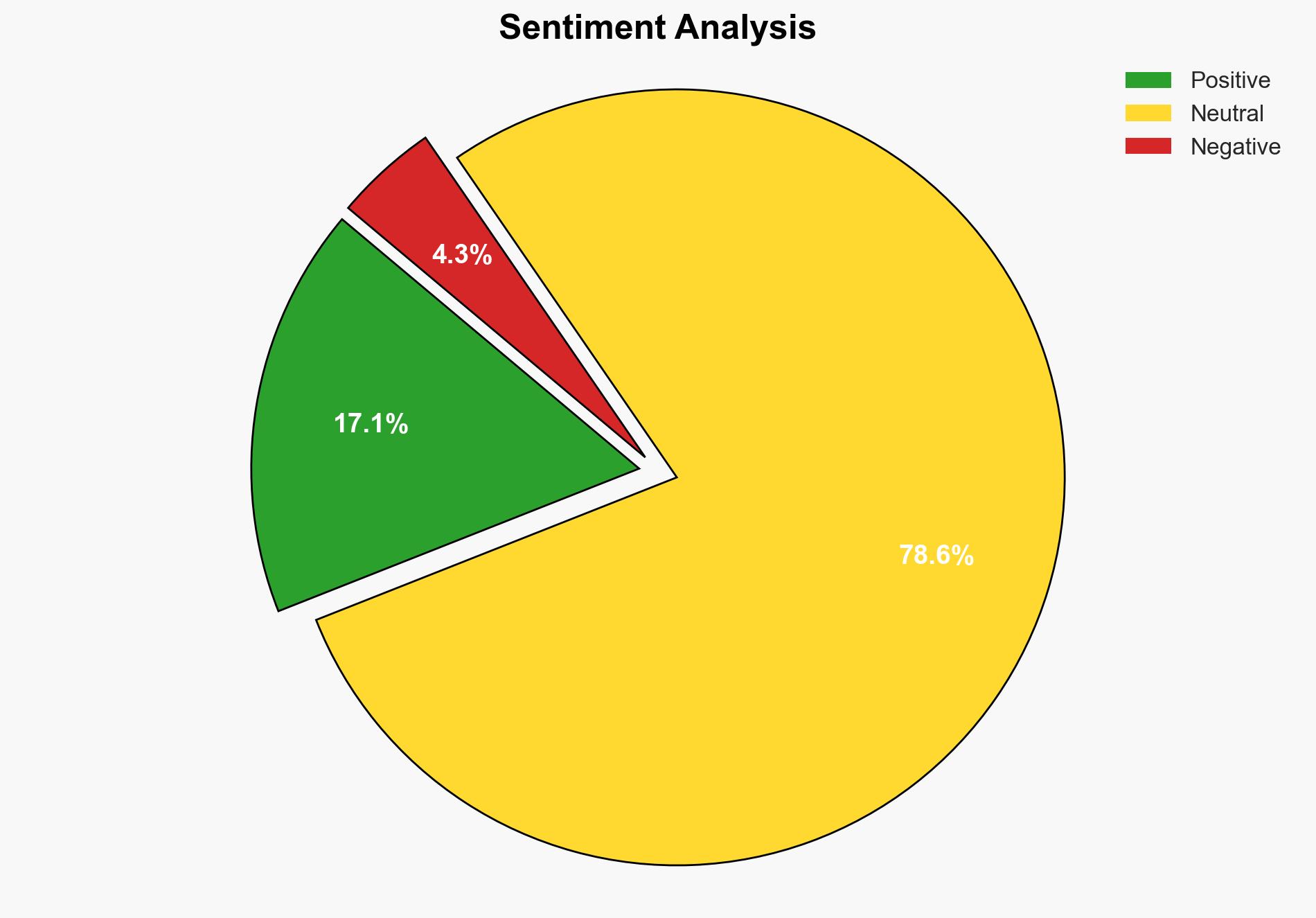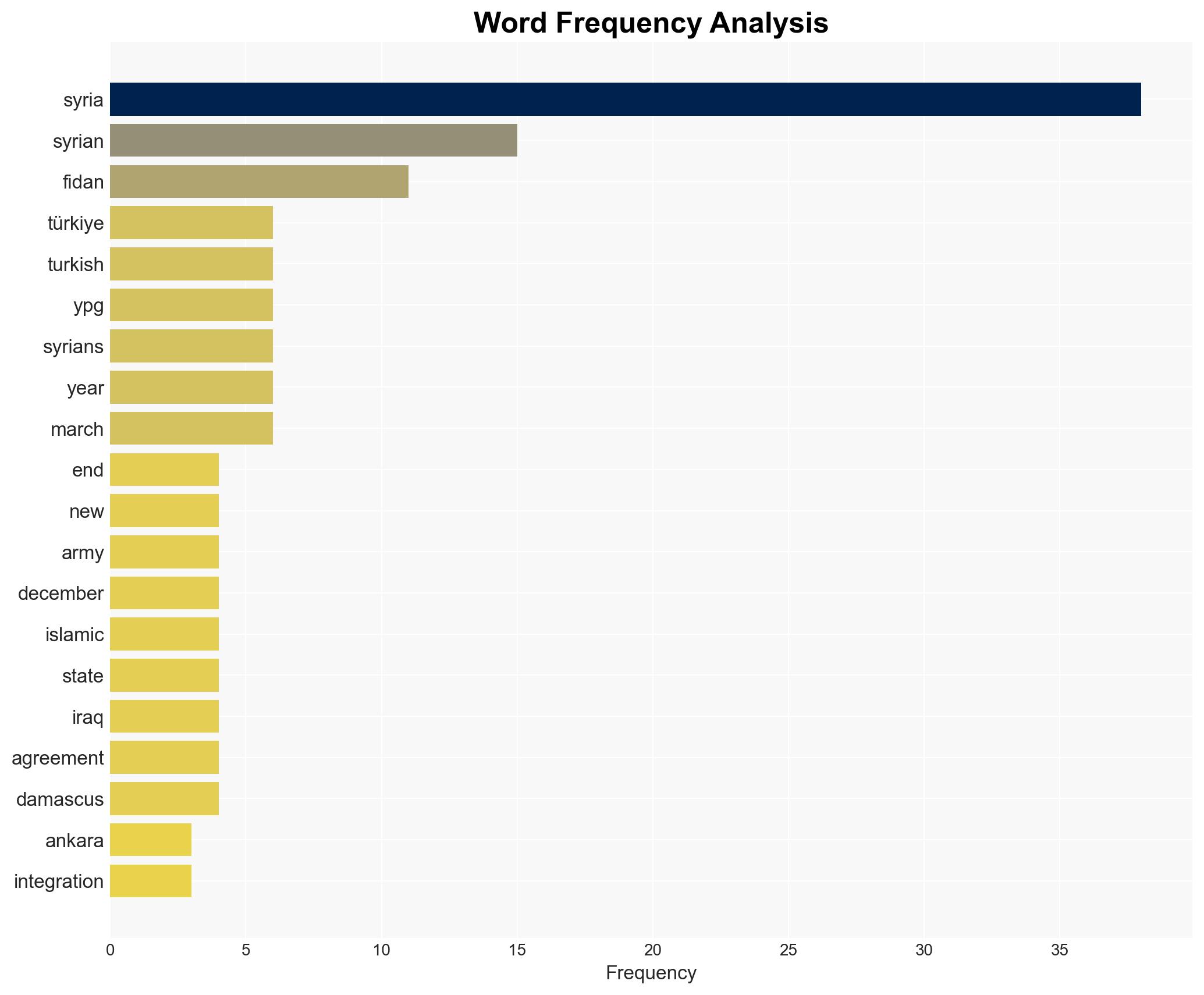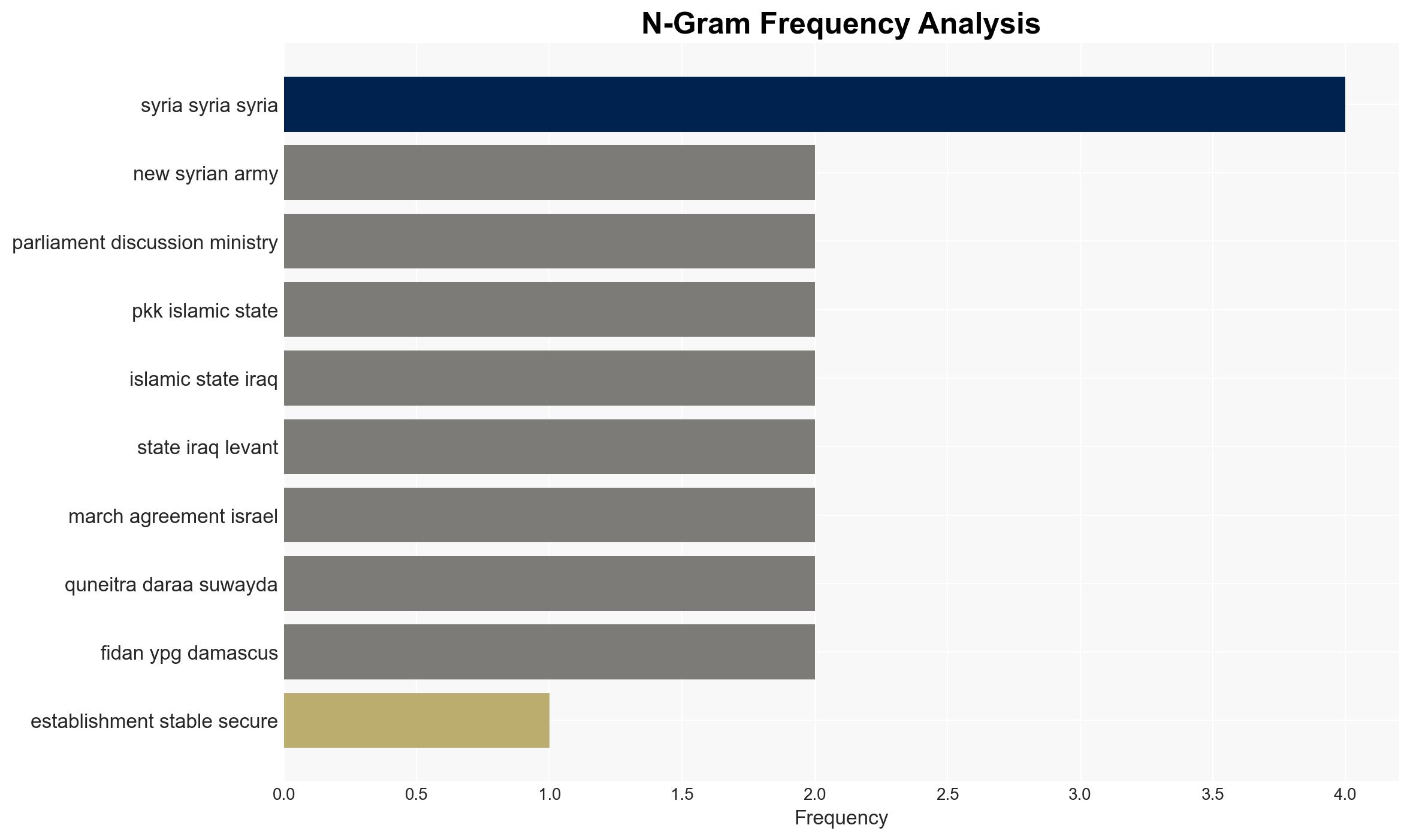Security in Syria a priority for Trkiye Fidan – Hurriyet Daily News
Published on: 2025-11-18
AI-powered OSINT brief from verified open sources. Automated NLP signal extraction with human verification. See our Methodology and Why WorldWideWatchers.
Intelligence Report:
1. BLUF (Bottom Line Up Front)
With a moderate confidence level, the most supported hypothesis is that Türkiye is prioritizing the integration of the YPG into a new Syrian army as a strategic move to stabilize Syria and counterbalance threats from the PKK and ISIL. Recommended actions include diplomatic engagement with regional stakeholders and monitoring the integration process to ensure alignment with broader counter-terrorism objectives.
2. Competing Hypotheses
Hypothesis 1: Türkiye’s focus on integrating the YPG into the new Syrian army is primarily aimed at stabilizing Syria to reduce threats from the PKK and ISIL, thereby enhancing regional security.
Hypothesis 2: Türkiye’s actions are a strategic maneuver to increase its influence in Syria, using the integration of the YPG as leverage to counterbalance Assad’s regime and other regional actors.
Hypothesis 1 is more likely given Türkiye’s historical emphasis on counter-terrorism and the explicit mention of reducing threats from the PKK and ISIL in the source text. However, Hypothesis 2 cannot be entirely dismissed due to Türkiye’s regional ambitions.
3. Key Assumptions and Red Flags
Assumptions: Türkiye’s primary goal is regional stability rather than territorial or political gain. The integration of the YPG is feasible and will be accepted by all parties involved.
Red Flags: Potential resistance from Assad’s regime or other regional actors to the YPG’s integration. Possible deception by Türkiye to mask broader geopolitical ambitions.
4. Implications and Strategic Risks
Successful integration could lead to a more stable Syria, reducing the operational capacity of PKK and ISIL. However, failure or resistance could escalate tensions, leading to increased conflict or a power vacuum that could be exploited by extremist groups. There is also a risk of political backlash from regional actors opposed to Türkiye’s influence.
5. Recommendations and Outlook
- Engage diplomatically with Türkiye and other regional stakeholders to support the integration process and ensure it aligns with broader counter-terrorism goals.
- Monitor the situation closely for signs of resistance or escalation, particularly from Assad’s regime or other regional actors.
- Best Scenario: Successful integration leads to a stable Syria and reduced terrorist threats.
- Worst Scenario: Escalation of conflict due to resistance, leading to increased instability and terrorist activity.
- Most-likely Scenario: Partial integration with ongoing challenges, requiring sustained diplomatic and counter-terrorism efforts.
6. Key Individuals and Entities
Hakan Fidan (Turkish Foreign Minister), YPG, PKK, ISIL, Assad’s regime.
7. Thematic Tags
Structured Analytic Techniques Applied
- ACH 2.0: Reconstruct likely threat actor intentions via hypothesis testing and structured refutation.
- Indicators Development: Track radicalization signals and propaganda patterns to anticipate operational planning.
- Narrative Pattern Analysis: Analyze spread/adaptation of ideological narratives for recruitment/incitement signals.
Explore more:
Counter-Terrorism Briefs ·
Daily Summary ·
Support us





